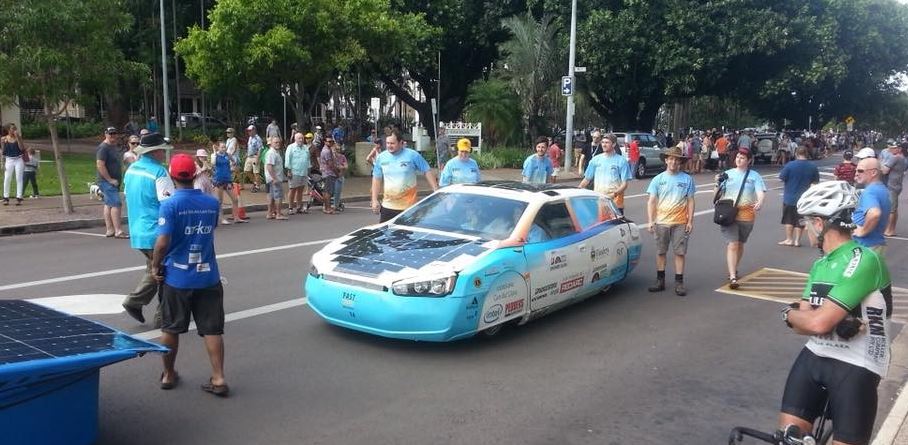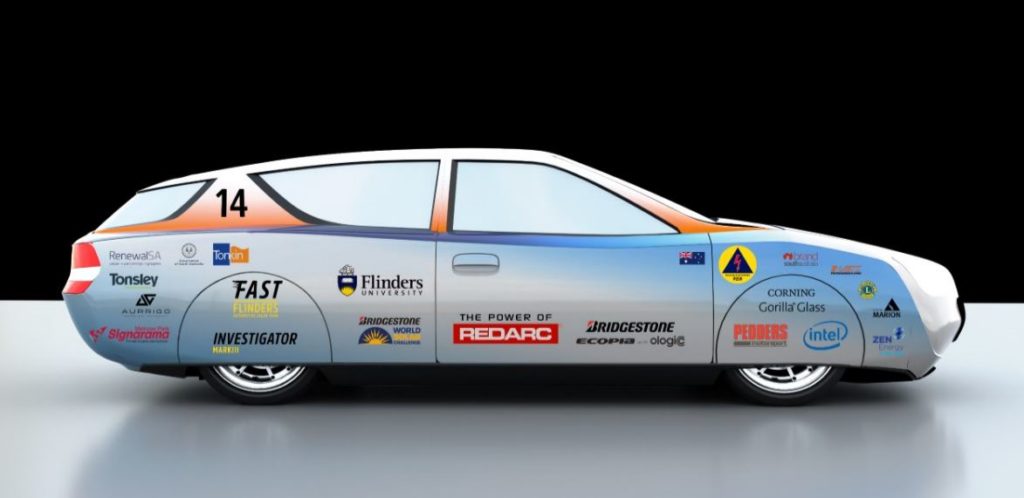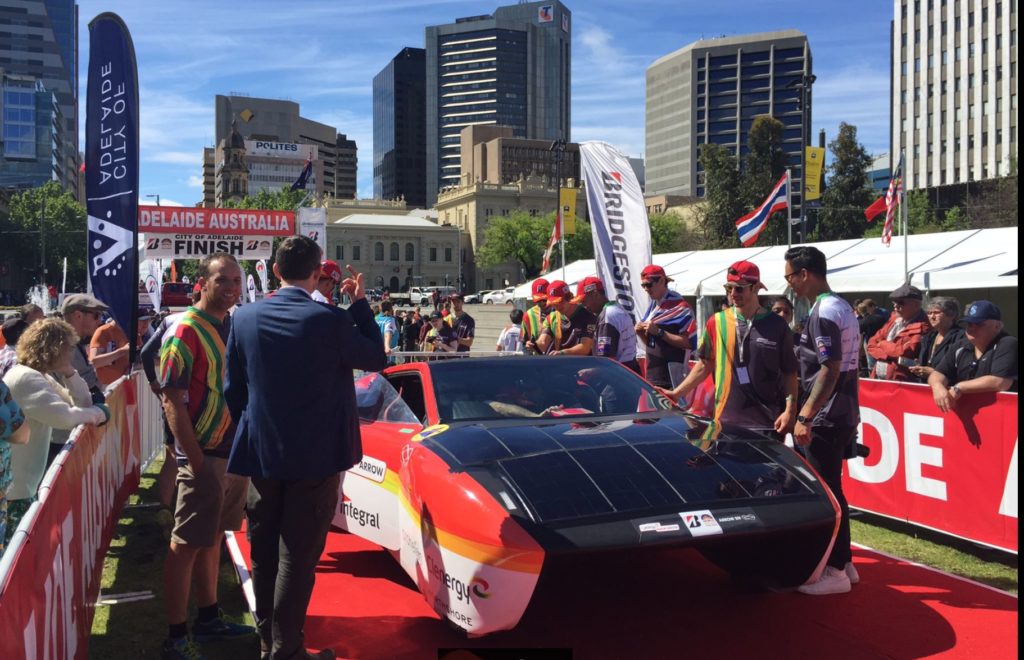
The first Flinders University passenger car in the Bridgestone World Solar Challenge is heading back to Adelaide for further development.
After passing its safety checks and passing some of the road tests, the vehicle (‘Investigator Mark III’) ran into last-minute mechanical issues with road trials which prevented it from starting the 3,000 km Darwin-Adelaide event this week.
In hot, humid conditions, several other entries including two others from Adelaide fielded by TAFE SA (SAV) and the Adelaide University (Lumen II) were also forced to drop out of competition and join the Adventure class for the remainder of the event.
The 15-plus enthusiastic Flinders team and four support vehicles are helping other entrants on the road trip before the entourage finishes in Victoria Square. The vehicles to finish will be greeted at a city reception.
Flinders Automotive Solar Team (FAST) spokeswoman Ms Romana Challans says there are plans to use the prototype vehicle for long-term research and development at Flinders – and for another crack at the biennial BWSC in two years’ time.

“2017 wasn’t our year but we will be back stronger than ever in the 2019 solar car race,” says Ms Challans, associate lecturer in Information Technology and Computer Science at Tonsley.
“We plan to seek official road registration of our car in South Australia so we can conduct road trials at Tonsley and, as such, we’ll continue to engage in research and development of all the advanced technologies involved in our vehicle.”
Flinders University’s Cruiser class entry is part of international research efforts into building sustainable and safe marketable solar electric passenger vehicles for the future.
In the Cruiser class, the 2013 and 2015 winning team Eindhoven from the Netherlands, HS Bochum from Germany, IVE from Hong Kong, Apollo VIII from Taiwan and Queensland’s Clenenergy Team Arrow will be judged on criteria other than speed – including energy management and passengers carried.
A record 31 entries were due to start the main Challenger event, which features teams from 21 countries including Japan, the USA, Sweden and the 2015 champions Nuon Solar Team from the Netherlands.

The Nuon Solar team, the flying Dutch from The Netherlands, claimed their seventh title while the experienced Einhoven, HS Bochum and Queensland Arrow teams took first, second and third placed in Cruiser class.
After late withdrawals for logistical reasons, there were 24 teams start in the Challenger class and 12 in the Cruiser class. As some dropped out from competition into the Adventure class, 12 Challenger teams and five Cruiser competitors made it to the finish line .
By the end of the race, 24 teams had joined the Adventure group as many competitors continued to learn more about the marathon solar challenge on the road south from Darwin.
“We have found that the competition is one of the friendliest around and we are playing our part in that,” Ms Challans says.
“We will welcome teams back at Tonsley from the finish line in Victoria in the week after the race to celebrate and share the amazing community we are all part of.
“Of course none of this would have been possible without our sponsors and the incredible commitment of the Flinders staff and students over the past two years.”
Celebrating 30 years this year, the world’s biggest solar challenge began in 1987. The third running of the Cruiser Class next to the main Challenger Class aims to encourage the ‘green to the mainstream’ with the design of practical electric vehicles where success is judged on a range of design and performance measures.

